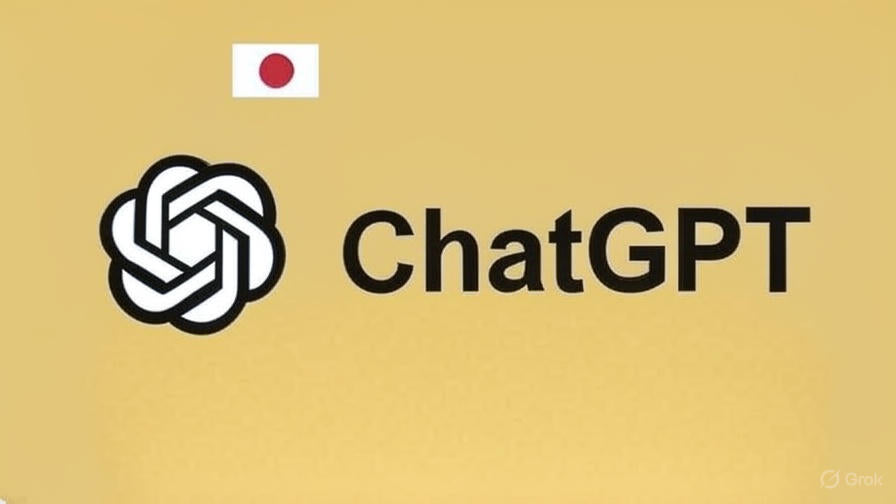Japanese Government Urges OpenAI to Halt Copyright Infringement with Sora 2 AI
Introduction
In a significant move highlighting growing concerns over artificial intelligence (AI) and intellectual property rights, Japan has officially requested OpenAI to prevent copyright infringement through its advanced video generation tool, Sora 2. The request comes amid reports of AI-generated videos mimicking beloved anime, manga, and video game characters—cultural pillars Japan regards as national treasures.
1. What is Sora 2 and Why is It Controversial?
OpenAI’s Sora 2 is an upgraded text-to-video AI that generates high-quality videos based on textual prompts. While it promises vast creative potential, its ability to reproduce iconic characters from series like Nintendo games and popular anime has sparked controversy. Critics argue that Sora 2 may use copyrighted material scraped from the internet during training, effectively enabling AI-driven plagiarism.
The Japanese government has made a formal request asking OpenAI to refrain from copyright infringement. This comes as a response to Sora 2's ability to generate videos featuring the likenesses of copyrighted characters from anime and video games. https://t.co/Vl1aiA0HHp pic.twitter.com/0Q9XYFbXwE
— IGN (@IGN) October 14, 2025
2. Japan’s Formal Request to OpenAI
Minoru Kiuchi, Japan’s Minister of State for Intellectual Property and AI Strategy, emphasized that manga and anime characters are “irreplaceable treasures” and urged OpenAI to prevent copyright infringement.
Japanese Digital Minister Masaaki Taira supported the request, calling for voluntary compliance to protect creative works. Parliament member Akihisa Shiozaki added that Japan has a “responsibility to lead” in establishing rules for AI and copyright protection.
3. Broader Implications for Creators
This move underscores a global debate on AI ethics and copyright. Japanese mangaka (manga artists) invest years in perfecting their craft, and unrestricted AI replication could devalue their work. Countries worldwide are watching closely, as Japan’s stance may set a precedent for how generative AI is regulated internationally.
4. Global Reactions and Industry Impact
The request has sparked discussions across social media, with fans and creators praising Japan’s proactive approach. Similar concerns exist globally, but Japan’s focus on preserving cultural assets makes this case particularly noteworthy. If OpenAI implements restrictions, it could lead to region-specific AI content regulations.
5. OpenAI’s Position and Possible Outcomes
OpenAI has not yet publicly responded. CEO Sam Altman previously defended AI development as a tool for innovation. However, the Japanese request could lead to stricter filters in Sora 2, adjustments in AI training protocols, or even international collaboration on copyright-safe AI.
FAQs
- Q1: Can Sora 2 generate any video I want?
- Not completely. While Sora 2 is powerful, it is under scrutiny for generating content that may infringe copyrights, especially in Japan.
- Q2: Why is Japan concerned specifically about anime and manga?
- These are major cultural exports and national treasures. Unauthorized AI replication could harm both creators and Japan’s global creative influence.
- Q3: Will OpenAI stop Sora 2 globally?
- Currently, it’s unclear. Japan’s request may lead to region-specific restrictions rather than a global halt.
- Q4: Are other countries taking similar actions?
- Some nations are exploring AI copyright laws, but Japan’s approach is among the most proactive in combining cultural preservation with AI ethics.
- Q5: How can creators protect their work from AI misuse?
- Through copyright registration, licensing agreements, and advocating for AI regulation. Government-led initiatives like Japan’s play a key role.
Conclusion
Japan’s formal request to OpenAI over Sora 2 highlights a critical tension between innovation and intellectual property rights. While AI can mimic creativity, it cannot replace the human ingenuity behind iconic anime and manga. This situation serves as a reminder: ethical AI development must respect creators’ rights, and global industries must navigate a delicate balance between technological advancement and cultural preservation.
Japan’s decisive stance may well influence the future of AI regulation worldwide, shaping how tools like Sora 2 are used while safeguarding the irreplaceable spark of human creativity.


0 comments